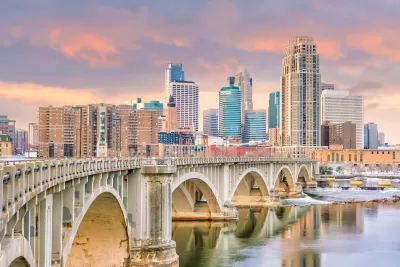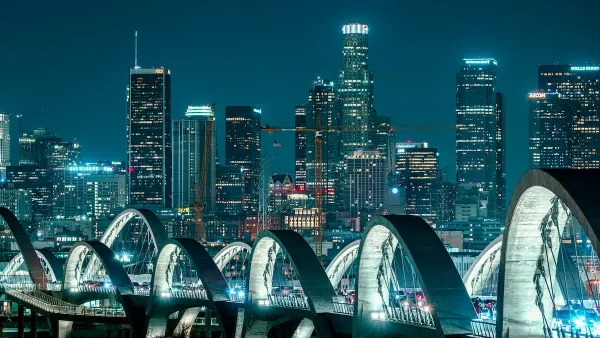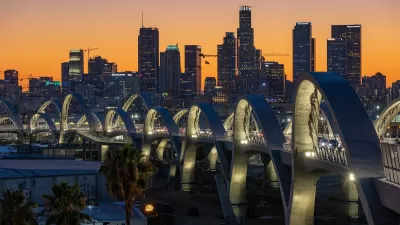A proposal calls for a reevaluation of the city’s skyways, a focus on street-facing businesses, and an improved public realm.

A study from the city of Minneapolis and the Downtown Alliance highlights the need for “more residents, better sidewalks, and some redevelopments” as part of a strategy to boost economic development in the city’s downtown, reports Bill Lindeke in the Minneapolis Post. “The main takeaway is the need for better sidewalks, places that boast street-front businesses, calmed traffic, and plenty of amenities. The report lumps all of this under the umbrella term “public realm,” describing the streets linking together currently thriving downtown areas.”
The study calls out the city’s famous skyways, noting that skyway traffic often makes street-level sidewalks more deserted. “Rather gently, the report suggests further study to ‘determine the viability of appropriately configuring the skyway to meet current and future needs.’ In other words, there are probably a few parts of the skyway system that could be amputated, and street life returned to the sidewalk where it belongs.”
Urbanists familiar with Minneapolis have long argued that the city needs a more comprehensive sidewalk network and public-facing downtown businesses to counteract the wide swaths of building faces that prompted William H. Whyte to call it “the blank wall capital of the United States.”
The study also references the downtown entertainment district as a key component of revitalization, as well as the need to redevelop some parcels that could bring new businesses and development to the area.
FULL STORY: In a pleasant surprise, new plan for downtown St. Paul is full of good ideas; here are some of the best

Maui's Vacation Rental Debate Turns Ugly
Verbal attacks, misinformation campaigns and fistfights plague a high-stakes debate to convert thousands of vacation rentals into long-term housing.

Planetizen Federal Action Tracker
A weekly monitor of how Trump’s orders and actions are impacting planners and planning in America.

In Urban Planning, AI Prompting Could be the New Design Thinking
Creativity has long been key to great urban design. What if we see AI as our new creative partner?

How Trump's HUD Budget Proposal Would Harm Homelessness Response
Experts say the change to the HUD budget would make it more difficult to identify people who are homeless and connect them with services, and to prevent homelessness.

The Vast Potential of the Right-of-Way
One writer argues that the space between two building faces is the most important element of the built environment.

Florida Seniors Face Rising Homelessness Risk
High housing costs are pushing more seniors, many of them on a fixed income, into homelessness.
Urban Design for Planners 1: Software Tools
This six-course series explores essential urban design concepts using open source software and equips planners with the tools they need to participate fully in the urban design process.
Planning for Universal Design
Learn the tools for implementing Universal Design in planning regulations.
Gallatin County Department of Planning & Community Development
Heyer Gruel & Associates PA
JM Goldson LLC
City of Camden Redevelopment Agency
City of Astoria
Transportation Research & Education Center (TREC) at Portland State University
Jefferson Parish Government
Camden Redevelopment Agency
City of Claremont





























